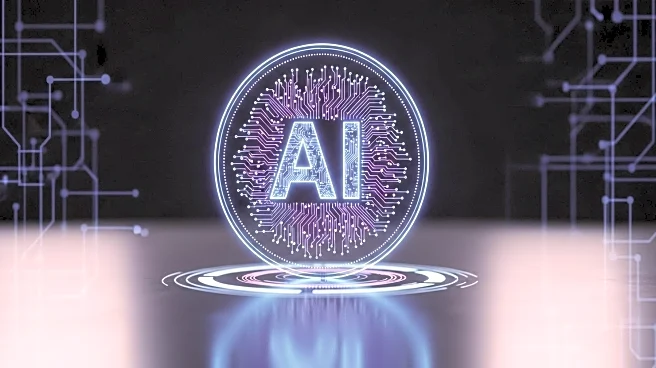What's Happening?
Ethan Mollick, a professor at the Wharton School of the University of Pennsylvania, addressed the CNBC Workforce Executive Council Summit in New York City, emphasizing the uncertainty surrounding the impact of generative AI on jobs and the economy. Mollick, who has advised figures such as Federal Reserve Chair Jerome Powell, stated that no one truly understands the future implications of AI, including top research labs. He highlighted the lack of experienced workers in generative AI, noting that productivity gains are evident but the future remains unclear. Corporate leaders, including those from Walmart and Verizon, shared similar sentiments, acknowledging the need for a shift in workplace culture towards curiosity and adaptability.
Why It's Important?
The discussion underscores the transformative potential of AI in the workplace, challenging traditional notions of career progression and skill acquisition. As AI continues to evolve, companies may need to prioritize soft skills such as empathy and adaptability over technical perfection. This shift could redefine hiring practices and career advancement, impacting industries across the U.S. The uncertainty surrounding AI's role in job replacement and productivity gains poses challenges for businesses and workers alike, necessitating a reevaluation of educational and professional development strategies.
What's Next?
Organizations may need to adapt their hiring and training practices to accommodate the evolving role of AI in the workplace. This includes fostering a culture of continuous learning and flexibility, as well as reassessing the value of traditional educational models. Companies like Sam's Club and Verizon are already integrating AI into their operations, suggesting a trend towards broader adoption and transformation. As AI technology advances, businesses will likely face decisions regarding automation and its impact on the workforce, with potential implications for employee benefits and job security.
Beyond the Headlines
The integration of AI into the workplace raises ethical considerations regarding job displacement and the equitable distribution of productivity gains. As AI becomes more human-like, the importance of interpersonal skills may increase, challenging existing corporate structures and reward systems. The shift towards a mindset of curiosity and adaptability could lead to long-term changes in organizational culture and leadership styles, influencing how companies approach innovation and decision-making.








